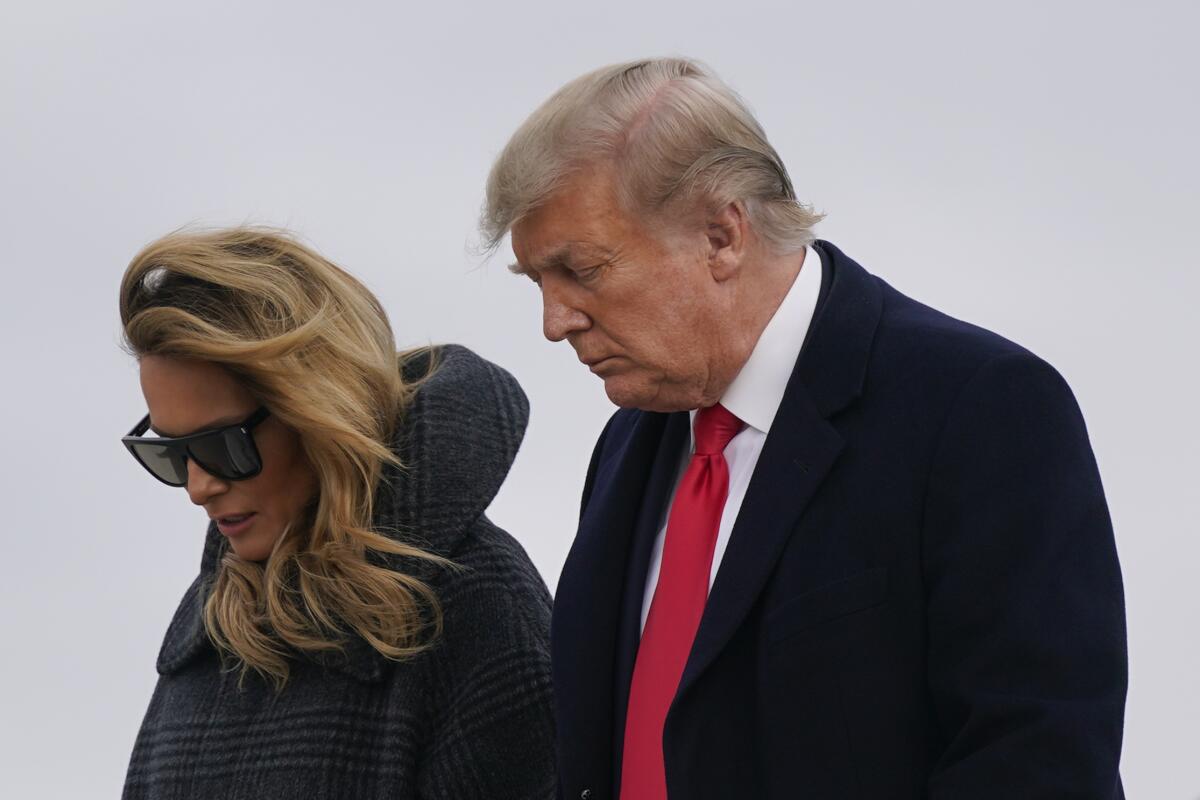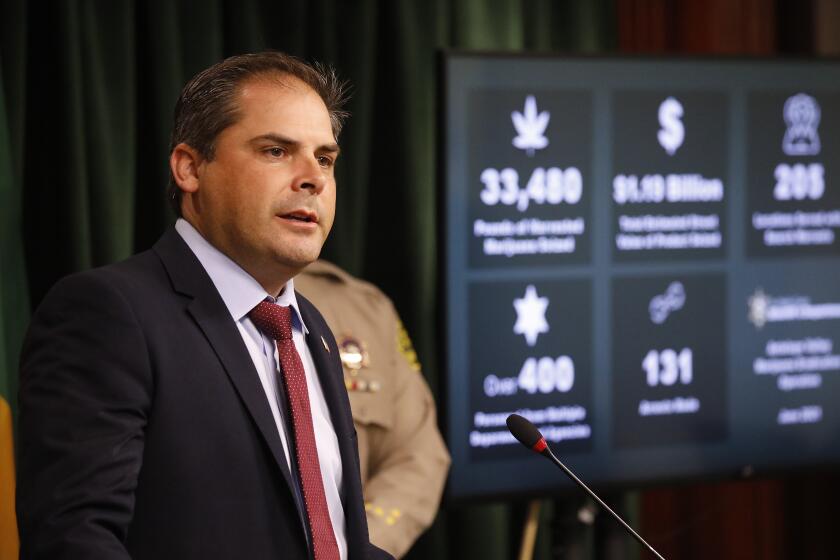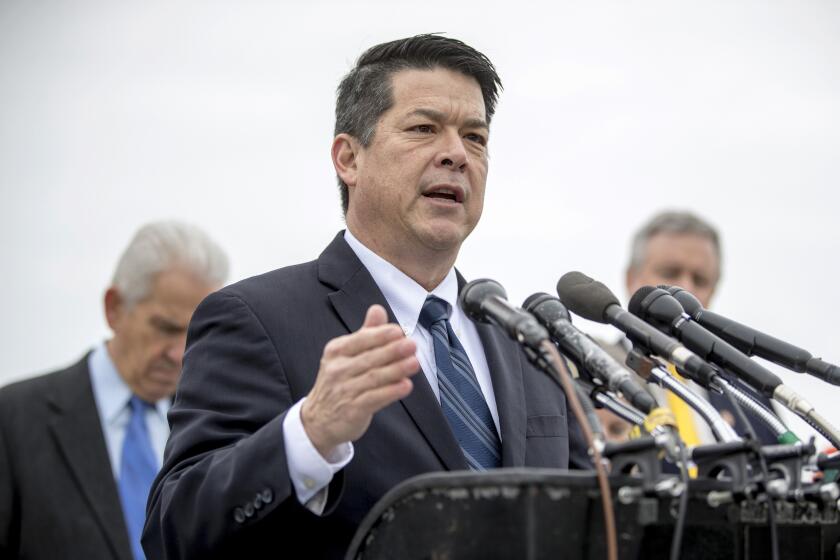Judge orders release of redacted affidavit used to obtain warrant in Trump search

- Share via
WASHINGTON — A judge on Thursday ordered the Justice Department to make public a redacted version of the affidavit it relied on when federal agents searched the Florida estate of former President Trump to look for classified documents.
The directive from U.S. Magistrate Judge Bruce Reinhart came hours after federal law enforcement submitted under seal the portions of the affidavit that they want to keep secret as their investigation moves forward.
The judge said the department must file its redacted version by noon Friday. The redactions proposed by the department are likely to be extensive, so it’s unclear how much new information about the investigation will be revealed.
Reinhart had given the department until noon Thursday to propose to him any redactions to the affidavit it wanted to make before any portion of it was released to the public. But he acknowledged Monday that it was possible that the redactions — blacked-out lines of text — would be so extensive as to leave the public version of the document without any meaningful information.
Rep. Mike Garcia (R-Santa Clarita) said the Justice Department was acting “more like a Third Reich” after FBI searched Trump’s Mar-a-Lago estate.
The affidavit is likely to contain key information about the FBI’s basis for obtaining and executing a search warrant at Mar-a-Lago in Palm Beach on Aug. 8. Documents already made public as part of the investigation show that the FBI retrieved from the property 11 sets of classified documents, including information marked top secret.
The documents also showed that the FBI was investigating the “willful retention of national defense information,” the concealment or removal of government records and obstruction of a federal investigation.
Multiple media organizations argued in court last week for the disclosure of the affidavit, citing the extraordinary public interest in the federal search of a former president’s home. Trump and some of his supporters have also encouraged the document’s release.
The media coalition responded to Thursday’s filing by asking the judge to unseal portions of the department’s brief and to direct the government, “going forward,” to file publicly a redacted version of any sealed document it submits. The groups noted that significant information about the investigation is already public.
Column: Under federal indictment, ex-California congressman deals Trump card from bottom of the deck
Fresno Democrat TJ Cox claims he’s a target of persecution — a laughable and irresponsible assertion.
“At a minimum, any portions of the Brief that recite those facts about the investigation, without revealing additional ones not yet publicly available — in addition to any other portions that pose no threat to the investigation — should be unsealed,” the news organizations wrote.
They added, “If and when additional facts come to light and are confirmed to be accurate, or certain facts no longer pose a threat to the investigation for any other reason, there is no justification for maintaining them under seal either.”
The Justice Department has opposed the release, saying the disclosure risks compromising an ongoing criminal investigation, revealing information about witnesses and divulging investigative techniques.
Reinhart has said that though he was sensitive to the department’s concerns, he was not inclined to keep the entire document sealed. He directed officials to submit to him redactions of the document reflecting the information it wants to keep secret.
More to Read
Get the L.A. Times Politics newsletter
Deeply reported insights into legislation, politics and policy from Sacramento, Washington and beyond. In your inbox three times per week.
You may occasionally receive promotional content from the Los Angeles Times.











